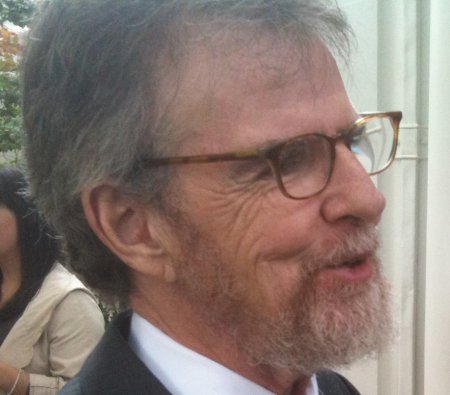Great Throughts Treasury
This site is dedicated to the memory of Dr. Alan William Smolowe who gave birth to the creation of this database.

Owen Flanagan
American Professor of Philosophy at Duke University, Chairman of Department of Philosophy at Duke, Visiting Professor at Berkeley, Brandeis, Princeton, Harvard and La Trobe in Australia
"Consciousness, according to some, is a useless epiphenomenon, a noticeable but ineffectual side effect of causally more interesting processes taking place within the system."
"Living meaningfully and living morally, as the latter is conventionally understood, can and do conflict."
"Memory is intimately linked to identity. Who I am is importantly constituted by both the content of my memories and by the manner in which I remember things – by how I fit them into the narrative of my life and by the spin I put on the events I remember."
"Three claims: (1) Consciousness exists. There exist conscious mental states, events, and processes that have the property of being conscious. (2) Consciousness has depth, hidden structure, hidden and possibly multiple functions, and hidden natural and cultural history. Conscious mental states supervene on brain states. (3) Conscious mental states, processes, events – possibly conscious supervisory faculties, if there are any – are heterogeneous in phenomenal world. A theory of consciousness will in the end be part of a unified theory of the mind."
"We narratively represent our selves in part in order to answer certain questions of identity. It is useful to distinguish two different aims of self-representation that in the end are deeply intertwined. First, there is self-representation for the sake of self-understanding. This is the story we tell ourselves to understand ourselves for who we are. The ideal here is convergence between self-representation and an acceptable version of the story of our actual identity. Second, there is self-representation for public dissemination, whose aim is underwriting successful social interaction."
"Moral ambiguity creates mental cramps of various sorts, which lead to reflection, discussion, and argument… Morality resists theoretical unification under either a set of special-purpose rules or single general-purpose rule or principle, such as the categorical imperative or the principle of unity. If this is right, and if it is right because the ends of moral life are plural and heterogeneous in kind and because our practices of moral education rightly reflect this, then we have some greater purchase on why the project of finding a single theoretically satisfying moral theory has failed."
"There is no consensus yet about the details of the scientific image of persons. But there is broad agreement about how we must construct this detailed picture. First, we will need to demythologize persons by rooting out certain unfounded ideas from the perennial philosophy. Letting go of the belief in souls is a minimal requirement. In fact, desouling is the primary operation of the scientific image. "First surgery," we might call it. There are no such things as souls, or nonphysical minds. If such things did exist, as perennial philosophy conceives them, science would be unable to explain persons. But there aren't, so it can. Second, we will need to think of persons as part of nature — as natural creatures completely obedient and responsive to natural law. The traditional religious view positions humans on the Great Chain of Being between animals on one side and angels and God on the other. This set of beliefs needs to be replaced. There are no angels, nor gods, and there is nothing — at least, no higher beings — for humans to be in-between. Humans don't possess some animal parts or instincts. We are animals. A complex and unusual animal, but at the end of the day, another animal."